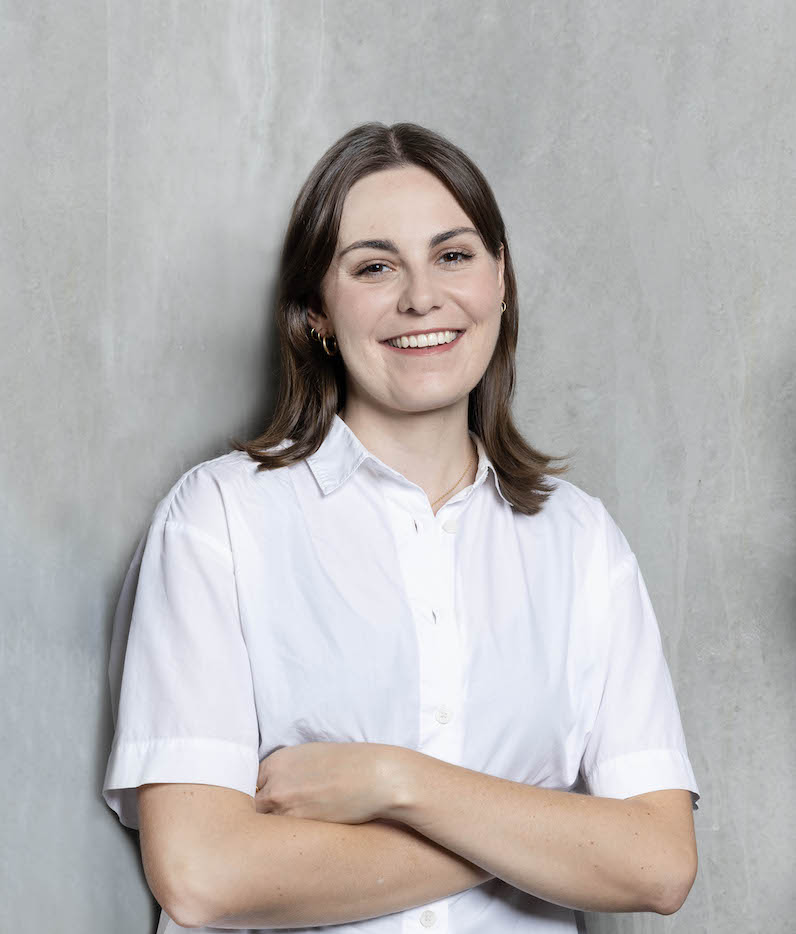Katarina Throssell is Investment Associate at Giant Leap.
She’s also a director and the Company Secretary of StreetSmart Australia, a national charity combatting homelessness, and its causes, by funding grassroots and front-line organisations.
What was your first job?
My first job was delivering the local newspaper with my younger sister when I was in middle school in Perth (read: flinging them haphazardly over people’s fences), followed by working behind the checkout at the IGA down the road.
My first significant career role was as a paralegal at the Australian Government Solicitor during university, where I translated the discovery documents from German to English for the ACCC’s enforcement action against Volkswagen for the 2015 diesel emissions scandal.
When did you know you wanted to work in finance/business?
Not until quite recently! I have always been passionate about impact, but I started my career by pursuing it through the lens of law and policy. Before Giant Leap, I worked as a commercial litigation lawyer at Arnold Bloch Leibler and as a Project Officer at the Commonwealth Climate and Law Initiative, via earlier policy internships at the Australian Permanent Mission to the UN in Vienna and at the Department of the Prime Minister and Cabinet in Canberra.
I decided to pivot to venture capital (VC) because I wanted to be able to help founders who are solving the world’s most pressing problems with forward-looking solutions, rather than through litigation’s inherently adversarial and reactive approach. I joined Giant Leap because I believe in the thesis that venture capital is a powerful means to provide rapidly scalable solutions to the market as soon as possible.
When did you first discover the concept of Impact Investing?
I first came across impact investing when I was looking for a way to marry my desire to create impact through my career with my commercial skills. I’d had exposure to the concept of impact finance from an international development perspective through my law and policy studies, but a close friend working in startups told me to consider the impact created by innovative sustainability startups like Great Wrap and Who Gives A Crap instead. Researching the VCs investing in these amazing companies led me straight to Giant Leap.
What’s one exciting development you and your team have in the pipeline?
We’re really excited to have increased our team’s presence in Sydney, with both Partner Adam Milgrom and Investment Analyst Hannah Mourney, now based there. We’re keen to continue playing a very active role in the ecosystem.
What was the most interesting impact deal (from any team across Asia/Pacific) in the past 12 months?
One of the most interesting impact deals we’ve seen in the past year is our portfolio company Trace. We believe that Trace’s philosophy of engaging staff through behavioural change to facilitate and embed carbon reduction within SMEs, rather than just offsetting emissions, represents the way of the future and sets it apart from traditional carbon accounting platforms. Trace is already facilitating tens of thousands of CO2 offsets through its platform, but we’re even more interested in its massive potential for emissions reduction. Trace focuses on delivering action, rather than just providing compliance information.
Our Theory of Change for the investment is that if Giant Leap supports Trace with values-aligned capital, then Trace will be able to provide carbon assessment and reduction services to help more companies achieve their net zero targets and ultimately contribute to reaching net zero by 2050.
Name one high impact company (globally) that investors should keep their eye on?
Investors should keep their eye on MoreGoodDays, a psychology-based online pain management program for fibromyalgia and chronic pain that recently raised AU$3.5m in its first funding round. More Good Days represents a significant normative shift away from using opioids and surgery as the core options for treating chronic pain conditions, toward more holistic healthcare methods underpinned by tech with the same efficacy, minus the medication.
We have been blown away by founders Neala Fulia and Helena Ngo’s mission to democratise healthcare and are excited to follow the impact they create. The startup has already run a pilot program of 140 people via Invisible Illness, a group supporting people with fibromyalgia, and more than 70% of participants reported an improvement in their symptoms after following MoreGoodDays’ program.
What’s your vision for impact investing in 5 years time?
My vision for impact investing in 5 years’ time is that we will have proven the thesis that all VC should be impact VC, because investing in businesses with positive environmental and social impact embedded in their revenue models is just as profitable, if not more, than investing through a purely commercial lens.
I believe that all capital allocators have both the ability and responsibility to invest in this way – there is no shortage of exceptional impact companies, and impact VCs target the same returns as non-impact funds.
Although this may seem like a lofty goal to achieve in 5 years, I’m reminded of Bill Gates’ quote: “Most people overestimate what they can do in one year and underestimate what they can do in ten years”. The Australian impact investing ecosystem has come a very long way since Giant Leap’s inception in 2016, and in any case, we only have 7 years to change the way the world operates if we’re going to hit the Paris Agreement targets – so there’s no time to waste.

